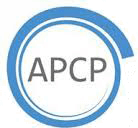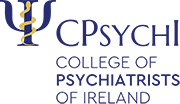For decades, therapy and mental health support were viewed with suspicion in Ireland. There was a prevalent societal belief that seeking help from a therapist was a sign of weakness, a stance often rooted in deep cultural traditions and a reluctance to address mental health openly. As a result, many individuals endured their mental health challenges in silence, hesitant or embarrassed to seek the help they so desperately needed. In a society where strength was often equated with silence and stoicism, the very idea of therapy was seen as something reserved for those who couldn’t handle life’s challenges on their own. However, in recent years, Ireland has made tremendous strides in eradicating this stigma, transforming how mental health and therapy are perceived.
Today, mental health is increasingly recognised as a critical aspect of overall well-being in Ireland. A growing number of people are embracing the idea of therapy as a positive and proactive step toward maintaining and improving their mental health. Public awareness campaigns, increased access to services, and a rising focus on the importance of mental health have contributed significantly to this cultural shift. Though there remains work to be done, the progress made in recent years has set Ireland on a path toward a future where seeking therapy is not only accepted but celebrated as a sign of strength and self-care.
The Historical Stigma: A Society Reluctant to Talk About Mental Health
To fully understand the transformation that Ireland has undergone in terms of mental health awareness, it is important to first look at the history of stigma surrounding therapy and mental health in the country. For much of the 20th century, therapy was not a common practice in Ireland. The country’s cultural and religious landscape, heavily influenced by Catholicism, placed immense value on stoicism and self-reliance. Emotions were often seen as something to be suppressed, especially in public life. This outlook was exacerbated by the limited mental health resources available to the general population.
In the mid-1900s, the majority of Ireland’s mental health professionals were trained abroad, particularly in the UK and other European countries. This was partly because there was a lack of specialised education and training programmes in Ireland. Those who sought therapy were often viewed with suspicion, as the act of going to a therapist was seen as a sign of vulnerability or personal failure. It was not uncommon for people to hide their struggles with anxiety, depression, or other mental health conditions due to the shame associated with seeking help. Consequently, many individuals suffered in silence, and mental health issues were frequently overlooked or minimised by society.
Even as the world changed and awareness of mental health issues grew globally, Ireland continued to lag behind in its acceptance of therapy as a legitimate form of support. Mental illness was still regarded as a personal flaw rather than a medical condition that could be treated. The idea of therapy was often met with scepticism or disdain, particularly among older generations who held onto more traditional views about mental health.
The Shift Toward Openness: Changing Attitudes Toward Mental Health
In recent years, Ireland has undergone a dramatic shift in its approach to mental health. A number of factors have contributed to this change, with the most significant being the rise in awareness campaigns and mental health initiatives across the country. These efforts have played a pivotal role in challenging longstanding stigmas and promoting therapy as a positive, accessible resource for those struggling with mental health issues.
One of the key milestones in this shift was the launch of national mental health campaigns aimed at breaking the silence surrounding mental illness. The “Let’s Talk About Mental Health” campaign, for example, was a powerful initiative that encouraged individuals to speak openly about their mental health struggles and to seek help when needed. These campaigns have helped to normalise therapy, highlighting the fact that mental health issues are common and that seeking professional support is a responsible and proactive step toward healing.
In addition to national campaigns, local communities have played an important role in supporting mental health awareness. Local groups and organisations have worked tirelessly to create safe spaces where people can discuss their mental health challenges and seek help without fear of judgement. Therapy services have also become more integrated into healthcare settings, with general practitioners (GPs) now regularly referring patients to therapists and counsellors as part of a comprehensive healthcare plan.
Schools and universities have also begun to recognise the importance of mental health, with many now offering counselling services to students. These institutions are helping to foster a culture of openness from an early age, teaching young people that seeking help is not a weakness but a sign of strength and self-awareness.
Expanding Access to Therapy: A Growing Network of Support
One of the most significant changes in Ireland’s mental health landscape is the expansion of therapy services. The country has seen an increase in the availability of professional therapists and counsellors, with more people than ever before seeking therapy. This growth in therapy services is partly due to the efforts of the government and various organisations to provide better access to mental health care.
Public health campaigns and policy changes have led to increased funding for mental health services. Ireland’s government has made mental health a priority, acknowledging that mental health issues affect people from all walks of life and that access to support is crucial for the well-being of the population. This has led to an increase in the number of publicly funded therapy services, making it easier for individuals to access help without the financial burden that was once associated with therapy.
In addition to public services, private therapy clinics have also proliferated across the country, providing individuals with a wider range of options. Many of these clinics focus on providing specialised therapy, such as cognitive-behavioural therapy (CBT), trauma-focused therapy, and family therapy, catering to a variety of needs and conditions. These clinics have also contributed to the destigmatisation of therapy, offering confidential and professional services that are easily accessible to those who require them.
Technology has also played a role in increasing access to therapy. Online therapy platforms have gained popularity, particularly since the COVID-19 pandemic, allowing individuals to receive support from the comfort of their own homes. This shift to virtual therapy has made it easier for people in rural or remote areas of Ireland to access the help they need, reducing barriers such as travel time and location.
Ireland’s Collaboration with International Organisations: A Global Perspective
Ireland’s progress in the field of mental health has not been isolated. The country has strengthened its relationships with international organisations such as the World Health Organisation (WHO) and the European Union (EU) to improve mental health care standards and policy. As a member of these global organisations, Ireland has been able to share best practices, collaborate on research, and advocate for better mental health services at an international level.
Ireland’s membership in the WHO’s Global Mental Health programme has opened doors for the country to adopt more progressive approaches to mental health treatment. This collaboration has led to the implementation of evidence-based therapies and greater emphasis on the integration of mental health care into primary healthcare settings. Ireland has also benefitted from funding and support from the EU, which has allowed the country to invest in mental health initiatives and expand its network of mental health professionals.
By aligning itself with international standards and participating in global discussions on mental health, Ireland has shown a commitment to improving the well-being of its citizens and positioning itself as a leader in mental health care in Europe.
The Road Ahead: Challenges and Opportunities
While Ireland has made significant progress in eradicating the stigma surrounding therapy, there is still work to be done. Despite the increased awareness and acceptance of therapy, many people, particularly those in rural areas, still face barriers to accessing mental health care. Long waiting times for public therapy services, the high cost of private therapy, and a shortage of mental health professionals in certain areas continue to present challenges.
Additionally, there remains a need for further education and advocacy to ensure that all members of society, regardless of their background or circumstances, feel comfortable seeking therapy. The stigma surrounding certain mental health conditions, such as addiction or psychosis, still lingers in some parts of the community, and continued efforts are required to address these issues.
However, the future is bright for mental health in Ireland. With a growing network of therapists, increased public awareness, and continued investment in mental health services, Ireland is well on its way to creating a culture where seeking therapy is not just accepted but celebrated. As more people embrace the importance of mental health and self-care, the stigma surrounding therapy will continue to dissipate, and more individuals will feel empowered to seek the help they need to live healthy, fulfilling lives.
In conclusion, the transformation of attitudes toward therapy in Ireland is nothing short of remarkable. What was once a deeply stigmatised practice has evolved into a recognised and respected resource for personal well-being. Through the efforts of individuals, communities, and organisations, Ireland is leading the way in making therapy accessible and acceptable for all. While challenges remain, the momentum towards a future of mental health acceptance is undeniable. With continued effort and support, therapy will no longer be seen as a sign of weakness, but as a vital and empowering step toward a healthier, happier society.












